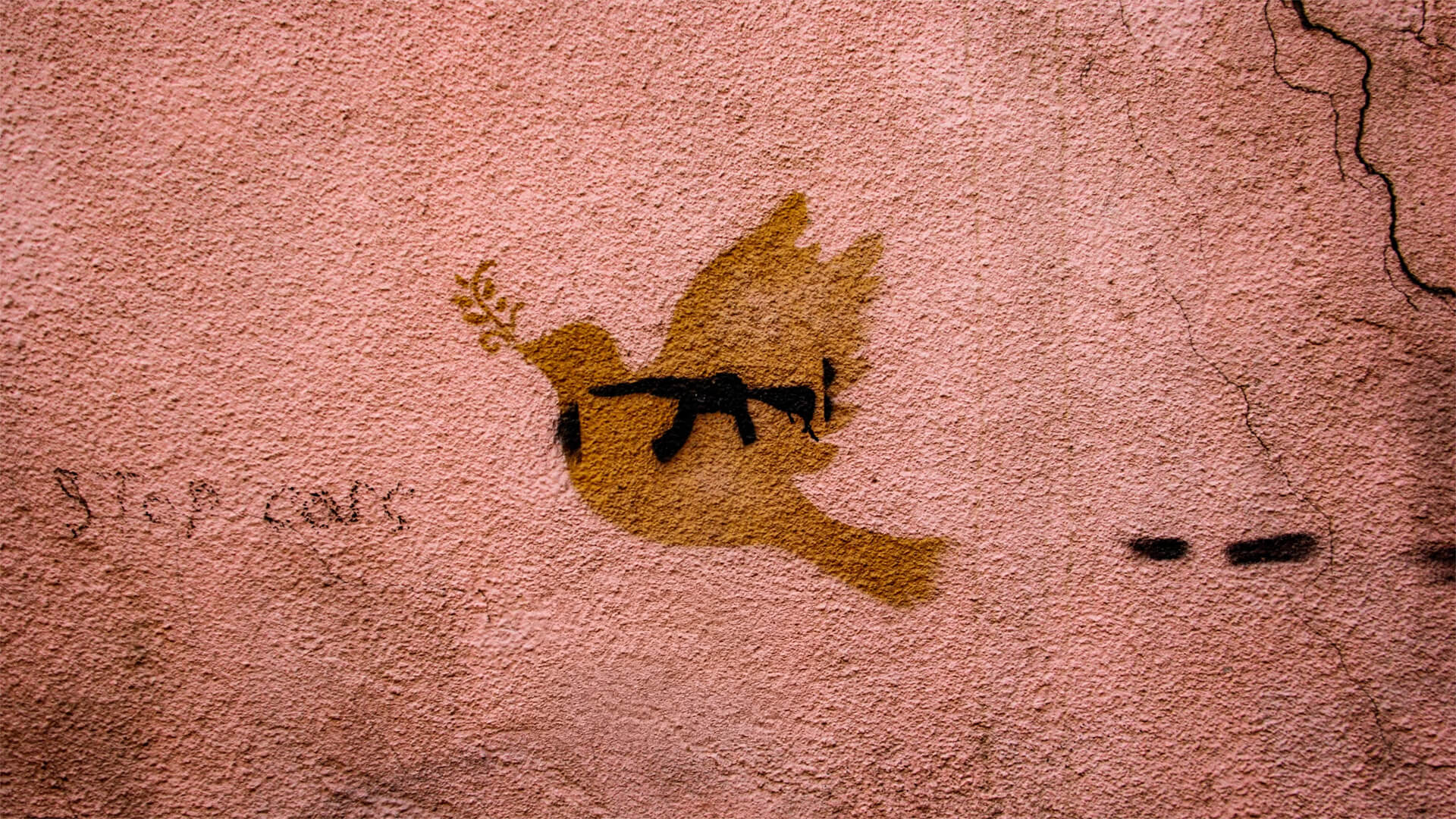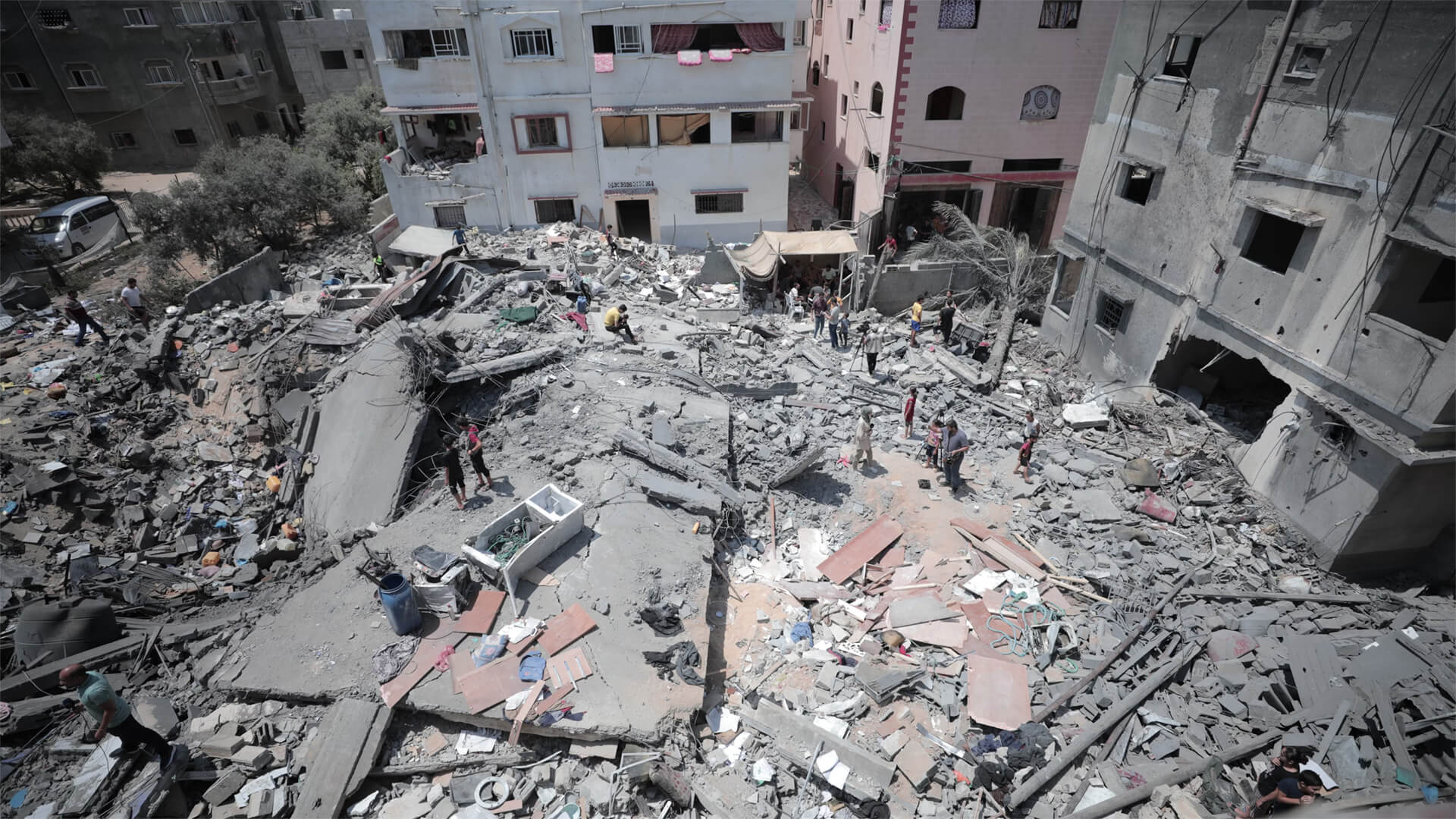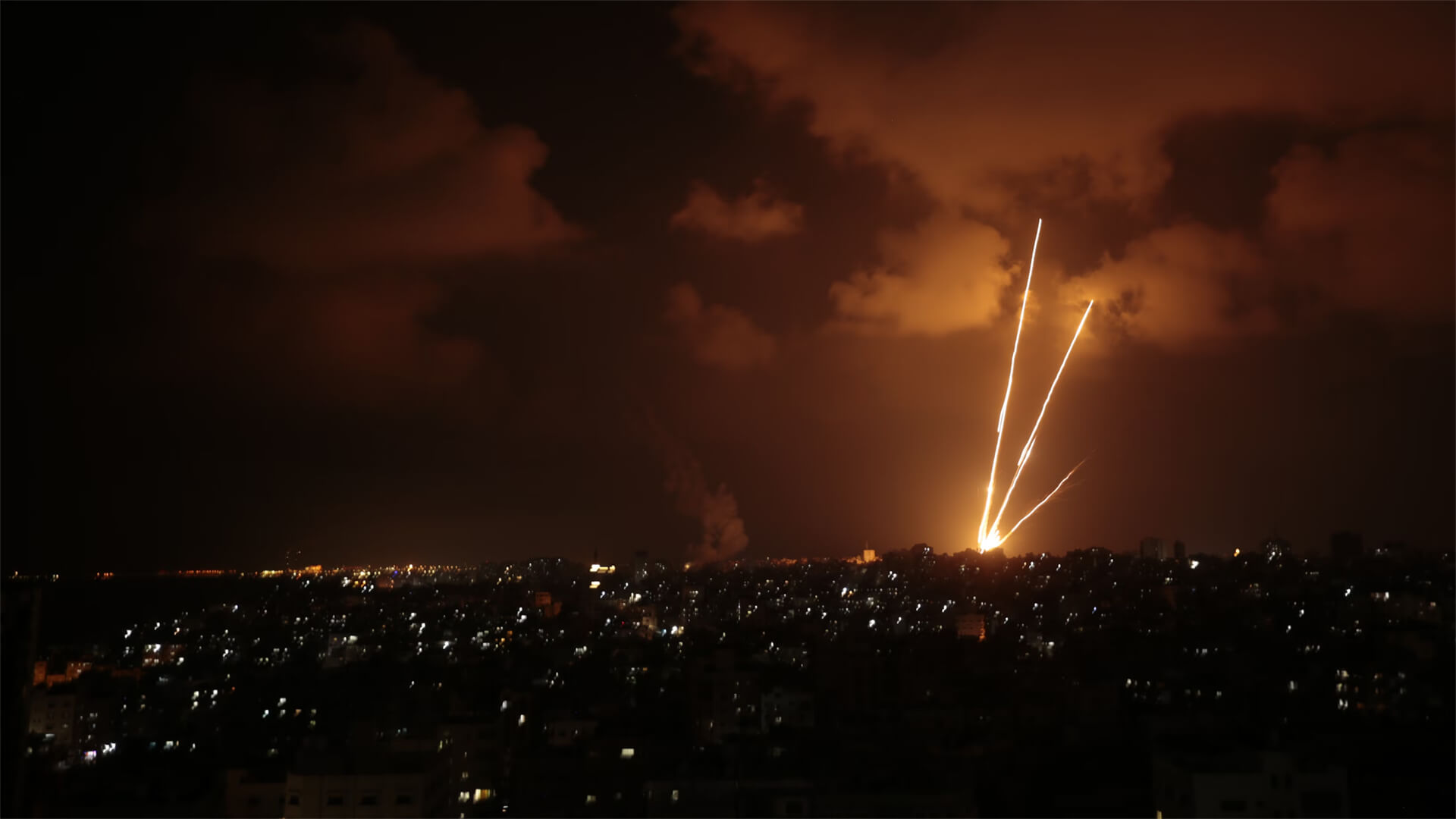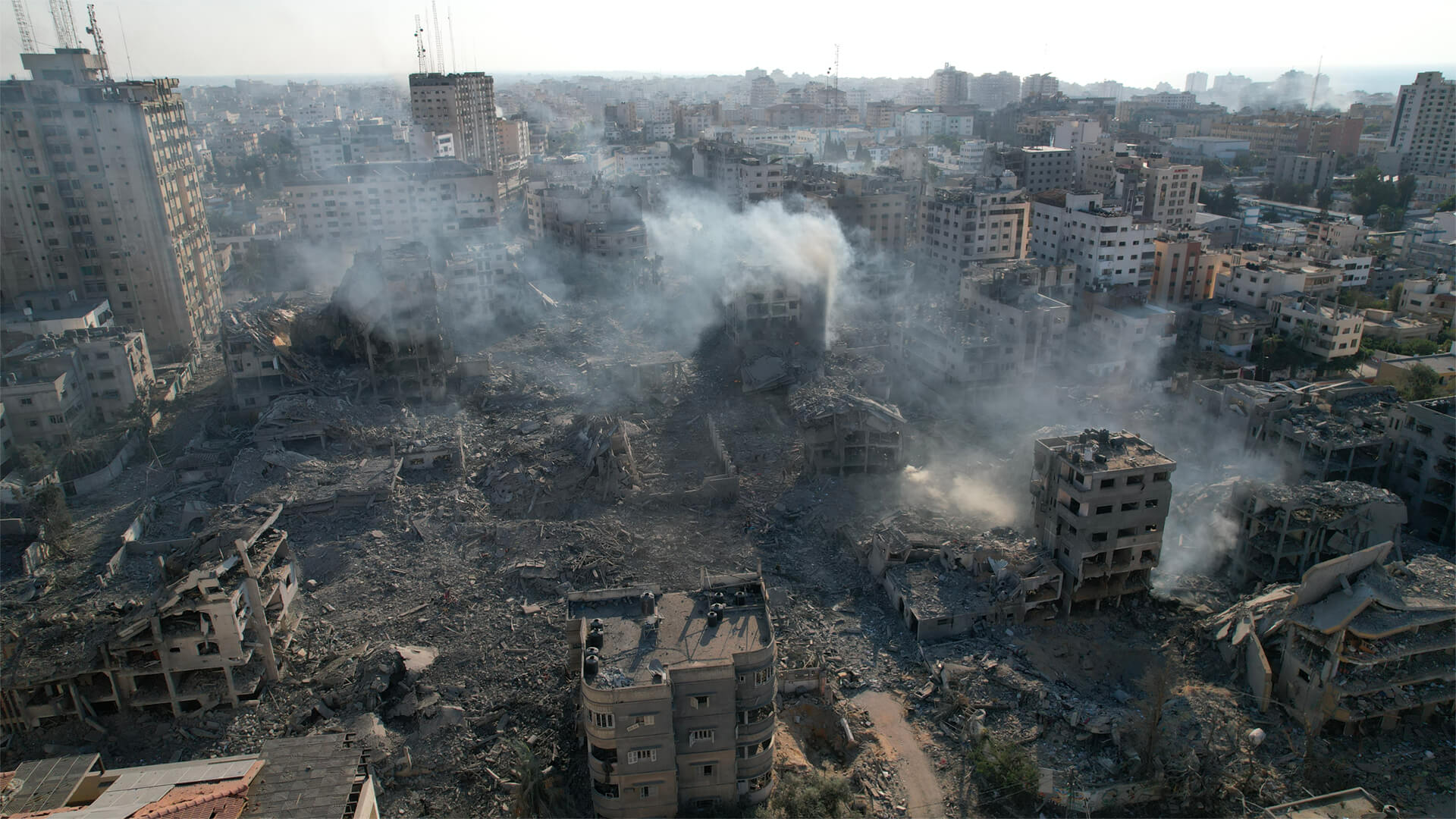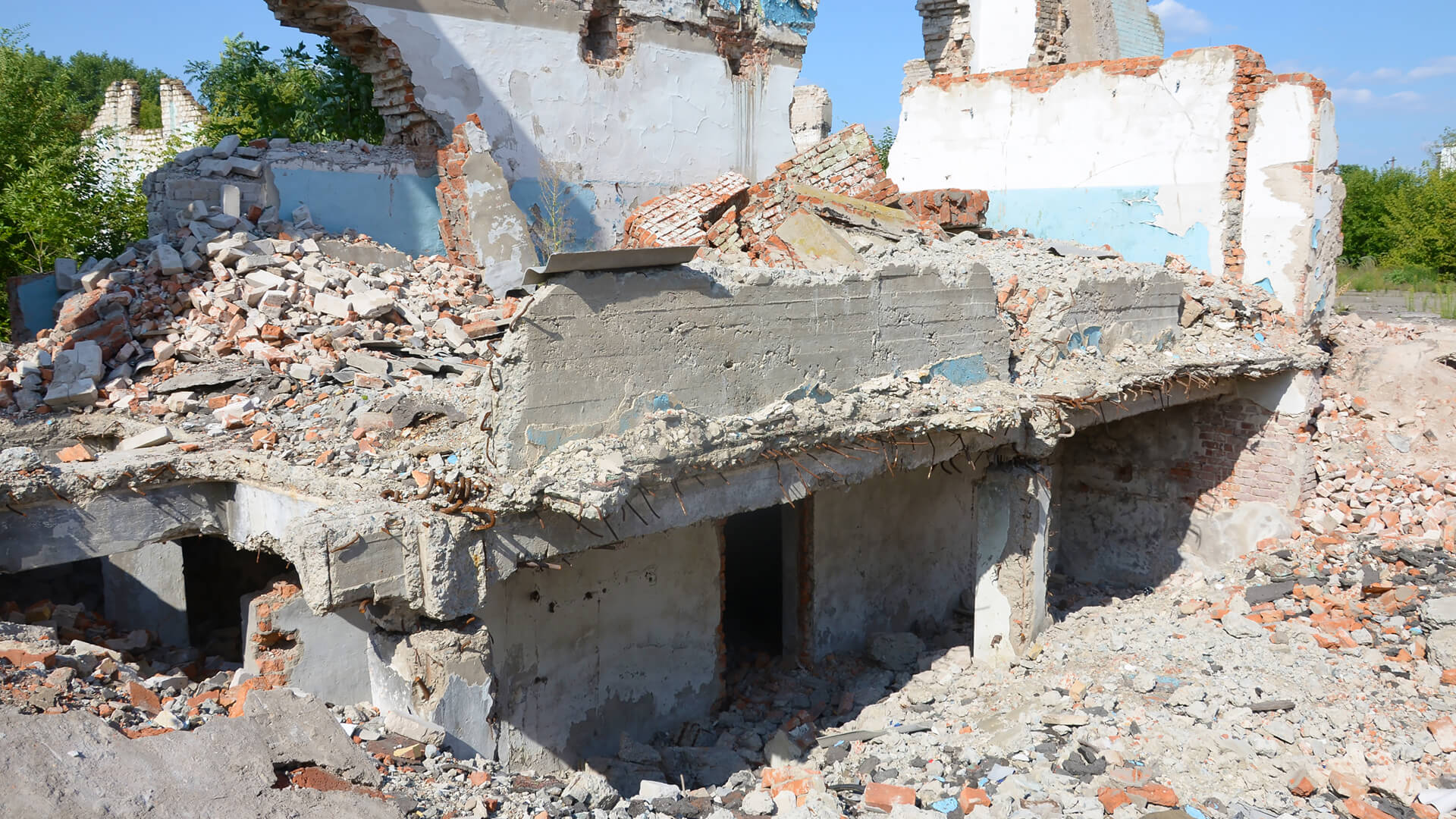Hey everybody. Peter Zeihan here coming to you from Colorado the morning of October 13th. We just had our first very light snowfall. The news is that last night, my time and early in the morning on the 13th, the Israeli government ordered all the citizens, the Palestinians of Gaza City, to evacuate to the south because their assault is imminent. The Israelis are going to be rolling in with a significant ground force with the intent of rooting out the entirety of Hamas leadership.
And maybe they even have some indication as to where their hostages are evacuating a million people, plus, which is what lives in Gaza. Two other places within the Gaza Strip, which is the most densely populated spot of humanity on the planet, is a practical impossibility. Of course, people on the other side of the argument are going to say it would have been really nice if Hamas had given the Israelis 24 hours to evacuate before their assault problems on all sides.
Anyway, we had recorded a lengthy video answering to as many of your questions as possible on what’s going on with Israel and Hamas and the Gaza Strip and what it means for wider relations in the region and beyond. The intent was for that to publish on Monday. But in light of this development, we decided to go ahead and release it.
Now, everybody, Peter Zine here coming to you from fall in Colorado. Lots and lots and lots and lots of you who had questions about what’s going on in Israel with the Gaza assaults. I’ll do my best to kind of rapid fire through these. So many questions. Okay. Question number one, how did the Israelis not know? Israel supposedly is the gold standard for intelligence and there aren’t a lot of things in the area that honestly they need to worry about all that much.
If you look at the big picture, Lebanon is a known quantity. Yes, Hezbollah, there is a problem, but Hezbollah is a political party in Beirut. And so there are lines of communications. There’s phones you can tap. And while they’re always worried about fighters in the hills of southern Lebanon launching attacks, whether rockets or missiles or artillery across the border, it’s kind of a known quantity and there are avenues to gather information.
So it’s an issue, but it’s not a critical war series. And civil war hasn’t been a problem on the Syrian border in over a decade. Actually, honestly, it’s been a problem on the Syrian border in three decades, especially since the Israelis literally control the high ground in the Golan Heights. So that’s not an issue. Jordan’s a satellite state that is dependent upon Israel for economic support.
So that goes away. Egypt is functionally an ally and the bulk of the Egyptian population is on the other side of the Suez Peninsula. So there’s just not people there that can theoretically cause problems. That just leaves the Palestinians and there is no one thing for the Palestinians. It’s Palestinian territories are broken into two chunks. The first one is on the West Bank of the Jordan River and kind of a crescent around Jerusalem.
And here you’ve got the PLO who is basically calling the shots. And while the relations between the Israelis and the PLO are Palestinian Liberation Organization, for those of you who don’t drink the Kool-Aid, while relations aren’t ever good, it is a semi functional local government and there are relations and that means there’s ways to monitor what’s going on.
And so that area has been relatively quiet. And then there’s Gaza where Hamas took over what’s been about 15 years now. Gaza is basically an open air prison that houses 3 million people. It’s about twice the size of the District of Columbia. So it’s one of the most densely populated places on Earth, heavily industrialized lifestyle, but no industrial inputs.
All the food from 90% of the food, 90% of the energy is imported along with all the liquid fuels. So to think that this zone could create a industrial power that controls Israel is of course laughable. But to think that people living in a prison camp, knowing that the height that they could aspire to be mayor of the prison, that’s as good as it gets.
You can understand why some less than savory ideologies might bubble up and why people might think that the situation is hopeless. Or when I go kill a bunch of people, I don’t mean that as justification and just as explanation. Anyway, this is the 1b1 the one thing that the Israelis have always been obsessed about. That’s where all of their microphones appointed.
And so the fact that they missed this is just mind boggling, because there were hundreds of fighters involved, dozens of vehicles using six different transport options. And the Israelis missed it all. Which leads into the second point. In Israel, there will be political connotations here and it will lead to the fall of the Israeli government. Now, the Israeli government was never particularly popular.
And so they’re enjoying at the moment a bit of a rally around the flag moment. And Netanyahu was smart and reached out to all the opposition parties to create a national war council to prosecute the conflict. He really needed to do that. He did do that. But the civilian government underneath that, that’s someone that’s in trouble. Part of its demographic.
The Israelis have some laws that protect basically people who commit themselves to Judaism. So if you’re studying to become a religious scholar and all you do is study the Torah, you don’t have to pay taxes and you don’t have to serve in the military. And that means that you can have lots of kids and don’t have to pay for them, which, you know, encourages people to have kids.
And that means somewhere between ten and 30% of the population, based on where you draw the line of the population, basically doesn’t work but can still vote. And think of that relative you have who’s on disability insurance and doesn’t work and who sits in his La-Z-Boy all day and bitches about how people are screwing up the world a problem and they are a rising demographic because of population growth.
I mean, the demographic and that means that they have been the king maker in any number of governments in recent decades. And they are a strong, strong minority within the Israeli system, and there’s no way to get rid of that. One of the many, many outcomes of being Jewish in a post all the cost world is that you value the opinion and you refuse to silence the voices of anyone within your community.
So the political system in Israel, it works on something called proportional representation, where you vote for a party and if the party gets 10% of the vote, they get 10% of the seats. Normally, if you’re going to have a political system like this, you want to have a floor so that the real whack jobs don’t get into government.
And in Israel, there really isn’t one functionally because they don’t want to silence anyone’s voices. So you have this whole rainbow of whack job right wing parties, right? Which is probably about the right term, is to call them religious fundamentalist parties who are supporting the current government. And they’re not very good at what they do because they’re coming from a stock of people that doesn’t value secular education at all.
So here in the United States, we’ve got Matt Gaetz gets the Florida guy who caused the downfall of Speaker McCarthy and basically made the American Congress nonfunctional. Take him take his awesome hair away and clone him. And that is roughly 40% of the Israeli government right now, people who are absolutely mind numbingly incompetent but have very firm ideas on how the world should work.
And they’re the ones who are now having to explain how they have presided over the greatest intelligence debacle in the world in the last 50 years. That will have consequences. So let’s do a Ron next. At the moment, there are no smoking guns indicating that Iran is behind this. But I would be shocked if they didn’t put their finger on the scale, at least for the timing.
Also, considering the various ways that the Hamas fighters launched into Israel that required nonstandard supplies, which had to come from the outside, and Iran is the most likely suspect. But really, it’s about the timing. The Saudis and the Israelis were working on a normalization process that if it would have completed, you would have taken the most powerful country in the Arab world, Saudi Arabia, economically, and as well as one of the larger ones.
And put it basically in the same bucket for security issues as the Israelis. And that would have triggered a number of other countries to follow suit, including places like Oman and Kuwait. And if that would have happened, basically the Iranians would have been facing a wall wall opposition throughout the entire region. Because, remember, the Iranians are Shia and Persian, where most of the region is Sunni and Muslim, Sunni, Shia being the two sets of Islam and Persians and Arabs being the ethnicities.
If that had happened, Israel would have been able to basically work through the Arab world to contain, be the Persians, the Iranians. And it would have been a downhill slide from there, no matter what happens with policy for anyone in the rest of the world. So they had a vested interest in disrupting that and we will probably find out in a month if it worked or not.
There’s an argument going on in Saudi Arabia right now about what to do and how much value to ascribe to the Palestinians. There was one pro forma news release that came out a couple of days after the attack, and that’s been it, although and I can’t underline this enough, this is not an alliance and Hamas is not a proxy of Iran.
Hamas is doing Hamas things for Hamas reasons that are defined by their position in Gaza, living in a prison camp. The Iranians think at best that the Palestinians are animals. Remember, there’s a religious and an ethnic split here. Hamas, like the Saudis, are Sunni and are Arab. And so the Iranians officially consider Hamas, the Palestinians and the Arabs in general to all be apostates and therefore worthy of elimination.
So if there was a deal on the table for the Iranians from anyone on anything like trying to get a discount at Red Lobster, they would sell out Hamas in a heartbeat. And that may well happen considering everything being up in the air these days diplomatically in the region. OC For thing what to expect next in the war, it’s going to be awful.
Hamas is not a unified organization and we’re not talking about the Catholic Church here. We’re talking about an institution that officially runs the place. But they import all their energy and their food. So they in charge of a little bit of distribution, and that’s about it. Security is managed by dozens of independent factions who pay at most lip service to the central government of the Hamas led Gazan government.
And that means that each faction does their own thing in their own way. And the challenge that the Israelis have always had is figuring out who to hold responsible when one of these groups does something. And because if you punish the Hamas formal civilian government for something that a militant group did, it’s not like the formal civilian government has tools or even awareness over some of these factions.
And best guess here is that we have a new faction in play because we see new tactics, new approaches, new aggressiveness, new seem of absolute brutality that we have never seen in the Palestinian movement before. And with that in play, the Israelis are doing what now? The key, and they’re trying to dismantle all of Hamas. So everyone that they are aware of who is in the Hamas chain of command and any faction they’re targeting for elimination now, and they’ve already delivered something like 4000 tons of explosives into the Gaza so far, basically wiping out the entire human infrastructure of the entire organization, every individual faction.
But considering the intelligence failure, that means they’re probably missing the one that actually did the attack. And the only way that the Israelis might be able to find and eliminate those people is by going into Gaza hard on the ground and going building them by building room by room until they find the people that they’re looking for and kill them all.
So you’re talking about a building by building scouring of a zone with 3 million civilians. That will likely take months, if not years. And the human damage will be immense because again, this is a zone, densely populated industrial area with no food or water or power. The scale of the devastation is something we have not seen since at least World War Two.
I think the closest one that I can imagine would be the Russian siege of Grozny in the nineties, which conservatively killed 20,000 people out of a population of a quarter of a million. You’re talking about a zone with so many more people. So no matter what side of this that you are on, be careful who you condemn. No one is in a good situation.
No one is going to come out of this looking good. No one is going to come out of this anything but bloody and bruised and scarred. So careful you condemn, except, of course, the terrorist who do the attacks pluck those guys. Okay, finally, the American angle. The idea that the United States didn’t see this coming, that doesn’t really strike me as an intelligence failure.
Just we have to focus. U.S. has a lot of interest in a lot of places and a lot of eyes and ears, but it has to focus on the places where it sees a strict national interest. Of late, most of that activity has been in the Ukraine zone. So Moscow, Kiev, places in between in order to assist with the war effort.
Israel is a capable country that largely takes care of itself and we have zero interest in Gaza because there’s nothing economically there. It doesn’t sit astride any sort of transport routes. It has no resources. It’s not a manufacturing hub. It’s not an intellectual technological hub. It’s a camp. So we basically let the Israelis deal with that because it’s their concern.
That’s how we deal with pretty much any zone where we don’t have a direct national interest. We outsource to the locals. Okay. But we now know there are at least a handful of Americans who were involved in the attacks on the receiving end and who were kidnaped and taken back into Gaza. And that’s a problem. The United States is not a perfect place, but part of the social contract between the American population and the American government is no matter who you are or where you are, no matter what you have done, we will send to the Marines for you.
But first, we have to know where you are. And since the Israelis had such a colossal intelligence failure, there’s no one to ask which puts the U.S. in an awkward position. There are really only two approaches approach. Number one is you put every eye and every ear that you can spare on the Gaza just to find a couple dozen people.
That’s a huge expenditure of effort for very little payback. We’re going to do it, but that’s a lot of things we can’t be doing instead. And once we know that, we will send in the Special Forces and maybe a marine group and basically blaze a path in and get them out and hopefully it’ll go better than what happened in Iran in 1979.
Feel free to Google that. If you’re under the age of 40, you don’t really catch the reference.
There’s only one other approach that might garner something working from the theory that the Iranians put their finger on the scale for this assault. The Iranians are the only people who have meaningful access to the people who actually carried out the assaults. The first rule of intelligence is you have to go where the information is. Sometimes Americans forget that we put a lot of effort into breaking people who had nothing to do with it because they just happened to be proximate.
For example, waterboarding Osama bin Laden’s driver didn’t get much, but in this case, the people who know something are friends or at least coworkers with the Iranian government. And that means one of the very, very, very, very few places where the United States can turn for information on where to send those special forces is Tehran. So regardless of what you think of the Trump administration or the Biden administration or American approaches to the Middle East in general, we now have a clear and present reason to engage with the Iranians in order to get the information that we need to fulfill one of our most basic sacred social contracts.
And that’s the only way forward for us. What happens in the rest of Gaza, from the American point of view, has now become secondary. It’s all about getting our people back, and that is not going to be a pretty process. Okay. One of these days, people are going to ask me friendly questions, but that’s probably not going to be for a while now.
So everyone take care and I will see you again soon.

